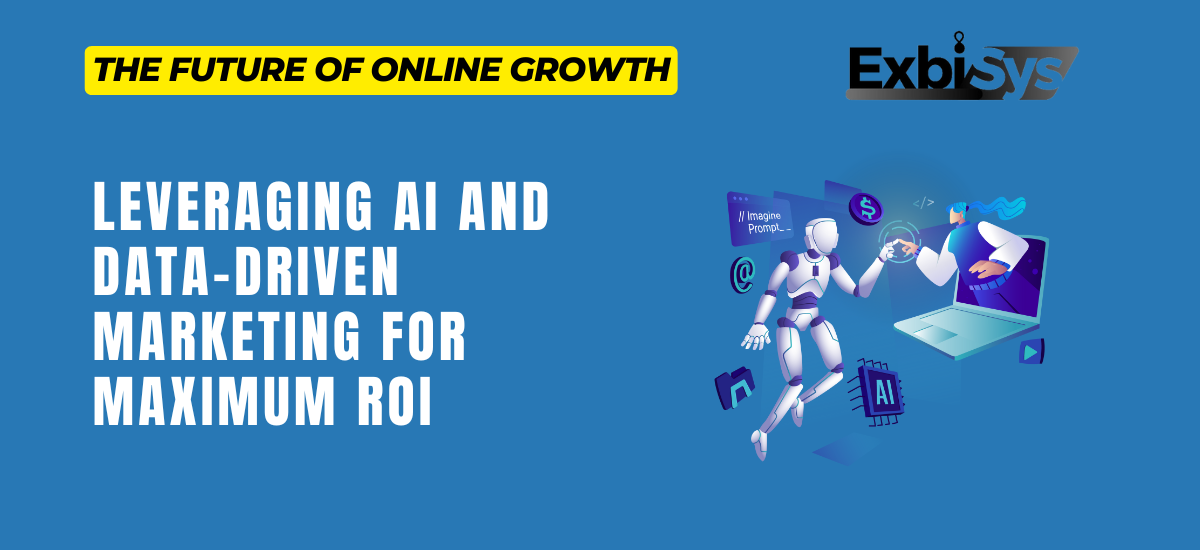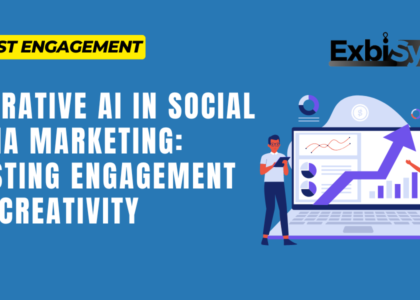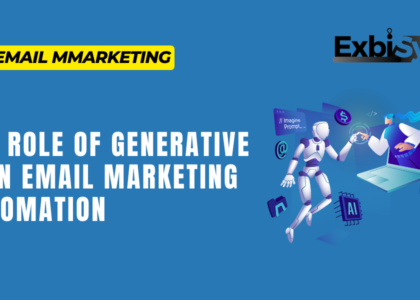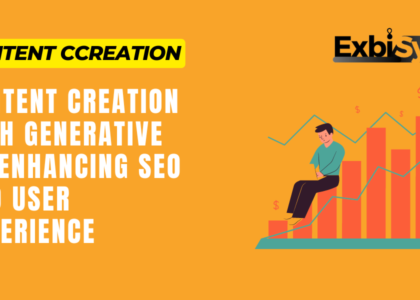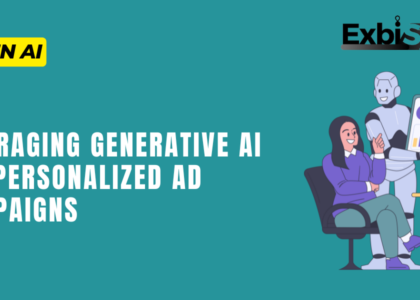In the ever-evolving digital landscape, businesses must stay ahead of the curve to maintain growth and competitiveness. Artificial Intelligence (AI) and data-driven marketing are two powerful tools that are shaping the future of online growth. By leveraging these technologies, businesses can optimize their marketing efforts, deliver personalized experiences, and achieve maximum return on investment (ROI). This article explores how AI and data-driven marketing are transforming the digital marketing space and how you can harness their potential to drive your business forward.
The Role of AI in Digital Marketing
Artificial Intelligence has become a game-changer in the world of digital marketing. With its ability to analyze vast amounts of data, AI can help businesses make more informed decisions, automate processes, and create highly targeted marketing campaigns. Here’s how AI is revolutionizing digital marketing:
1. Predictive Analytics
Predictive analytics, powered by AI, enables businesses to anticipate customer behavior and trends. By analyzing historical data and identifying patterns, AI can predict future actions, such as purchasing decisions or customer churn. This allows businesses to proactively address customer needs and tailor their marketing strategies accordingly, leading to higher conversion rates and improved customer retention.
2. Personalized Customer Experiences
Personalization is key to engaging today’s consumers, and AI makes it easier than ever to deliver customized experiences. AI algorithms can analyze customer data, such as browsing history, purchase behavior, and preferences, to create personalized content, product recommendations, and targeted ads. This level of personalization not only enhances the customer experience but also increases the likelihood of conversions.
3. Chatbots and Customer Service
AI-powered chatbots are transforming customer service by providing instant, 24/7 support. These chatbots can handle a wide range of customer inquiries, from answering common questions to assisting with transactions. By automating customer service, businesses can reduce response times, improve customer satisfaction, and free up human resources for more complex tasks.
4. Optimized Advertising Campaigns
AI can optimize advertising campaigns by analyzing performance data and making real-time adjustments. For example, AI can automatically adjust bidding strategies in pay-per-click (PPC) campaigns to maximize ROI. Additionally, AI can identify the most effective ad placements and target audiences, ensuring that your ads reach the right people at the right time.
Data-Driven Marketing: The Power of Insights
Data-driven marketing is all about using data to guide your marketing decisions. By collecting and analyzing data from various sources, businesses can gain valuable insights into customer behavior, preferences, and market trends. Here’s how data-driven marketing can help you achieve maximum ROI:
1. Enhanced Audience Targeting
One of the key benefits of data-driven marketing is the ability to target specific audience segments with precision. By analyzing demographic, geographic, and behavioral data, businesses can create highly targeted campaigns that resonate with their ideal customers. This leads to more efficient use of marketing budgets and higher conversion rates.
2. Performance Tracking and Optimization
Data-driven marketing allows businesses to track the performance of their campaigns in real-time. By monitoring key metrics, such as click-through rates, conversion rates, and customer acquisition costs, you can identify what’s working and what’s not. This enables continuous optimization of your marketing efforts, ensuring that you get the best possible results from your campaigns.
3. Informed Content Creation
Data-driven insights can inform your content creation process by revealing the topics, formats, and channels that resonate most with your audience. For example, by analyzing social media engagement or website analytics, you can identify the types of content that drive the most traffic and engagement. This ensures that your content marketing efforts are aligned with your audience’s preferences and needs.
4. Improved Customer Journey Mapping
Understanding the customer journey is essential for creating effective marketing strategies. Data-driven marketing allows businesses to map out the entire customer journey, from initial awareness to post-purchase interactions. By analyzing data at each stage of the journey, you can identify opportunities to improve the customer experience and increase conversions.
The Future of AI and Data-Driven Marketing
As AI and data-driven marketing continue to evolve, they will play an even more significant role in shaping the future of online growth. Here are some trends to watch for:
1. AI-Driven Content Creation
AI is already being used to generate content, from product descriptions to social media posts. In the future, AI-driven content creation will become more sophisticated, allowing businesses to produce high-quality, personalized content at scale.
2. Advanced Customer Segmentation
AI will enable even more advanced customer segmentation by analyzing data from multiple sources, including social media, purchase history, and customer feedback. This will allow businesses to create hyper-targeted campaigns that speak directly to the needs and preferences of specific customer segments.
3. Real-Time Personalization
Real-time personalization will become the norm as AI continues to improve. Businesses will be able to deliver personalized experiences across all touchpoints, from websites to email campaigns, based on real-time data and customer interactions.
Conclusion
AI and data-driven marketing are not just buzzwords; they are powerful tools that can drive significant growth for your business. By leveraging these technologies, you can optimize your marketing efforts, deliver personalized experiences, and achieve maximum ROI. As the digital landscape continues to evolve, businesses that embrace AI and data-driven marketing will be well-positioned to succeed in the future.

